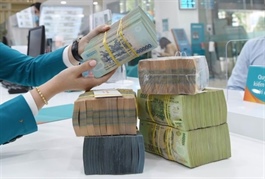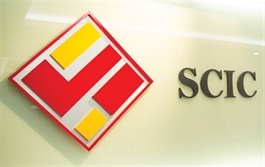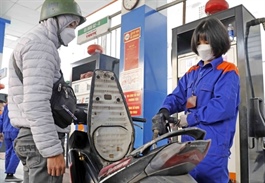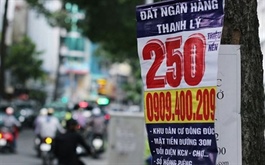Playing field could be balanced with VAT exemptions
Playing field could be balanced with VAT exemptions
The Ministry of Finance is recommending the exclusion of several specific goods and services from the scope of VAT exemption.

According to the ministry (MoF), businesses are currently unable to declare and deduct VAT costs incurred in production, leading to increased production costs and decreased profits.
The mentioned groups of goods and services, including fertilisers, agricultural machinery, offshore fishing vessels, securities depository, market organisation services, public utility postal and telecommunication services, and maintenance services for public spaces, are proposed for removal from the list previously exempted from VAT.
In particular, in the draft law open for public comment, the MoF aims to level the playing field with imported fertilisers, as most imported fertilisers are subject to VAT in exporting countries.
“The proposed change is driven by the observed disadvantages faced by domestic fertiliser businesses in competing with imports,” the MoF said.
The ministry notes that the current situation results in a loss of budget revenue at the import stage, while import taxes are minimal or non-existent. This prompts domestic manufacturers to pass a portion of the tax cost into the price, affecting farmers who face higher prices.
Stakeholders, including fertiliser businesses, the Ministry of Industry and Trade, the Vietnam Fertiliser Association (VFA), and National Assembly delegates, have reported these challenges and advocate for the 5 per cent VAT rate.
Phung Ha of the VFA supports the proposal, citing its potential to create fair competition and reduce fertiliser prices, benefiting both consumers and domestic manufacturers.
“This adjustment would enhance equality for domestic enterprises in international bidding and contribute to reducing fertiliser prices, thereby fostering conditions for investments in high-quality projects,” he said.
Likewise, a representative from a domestic manufacturing business suggests amending the law to raise the fertiliser tax from zero to 4-5 per cent. “This would ensure a competitive environment, and farmers would benefit from reduced fertiliser costs if this tax is applied,” he assessed.
If the proposal is approved, consumers purchasing fertiliser will face an additional 5 per cent VAT. However, the MoF points out that selling prices are determined by market supply and demand, and reverse tax calculation could ultimately benefit consumers.
Based on this analysis, goods and services, when subject to tax, typically fall within a 5-10 per cent tax rate. With a 5 per cent output VAT, domestic fertiliser production enterprises can deduct this tax from input amounts or receive a tax refund, reducing production costs and enhancing competitiveness against imported goods.
The MoF underscores the positive impact of VAT deduction, asserting that businesses would save costs, have more resources for investment, technological innovation, quality improvement, and lower selling prices. This policy benefits consumers opting for domestic goods.
Contrastingly, the MoF refers to the financial statements of the five largest fertiliser manufacturing companies, indicating a combined revenue of nearly $2 billion in 2022. Applying a 5 per cent tax rate would result in an output VAT amounting to almost $98 million.
Internationally, while many countries offer preferential policies on fertilisers, exempting them from VAT, some countries like China, Romania, Croatia, and India collect taxes at low levels. The proposed VAT adjustment in Vietnam reflects a nuanced approach, considering the industry’s dynamics and global practices.
Also in the amended draft, three categories of goods are proposed to not be eligible for the zero tax rate. These include imported and subsequently exported tobacco and alcohol; petrol and oil purchased domestically for sale to various businesses; and goods and services provided to individuals not registered for business within the non-customs zone.
Additionally, the draft introduces a provision that excludes the zero tax rate for products and services provided on digital platforms, as regulated by the government. This adjustment aims to ensure flexibility in determining whether these products or services are consumed in Vietnam or abroad at the time of supply.
Determining the consumption location for products and services on digital platforms is complex, typically relying on the taxpayer’s declaration.




























